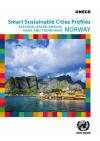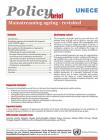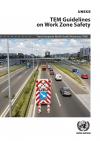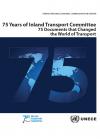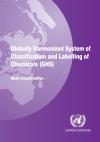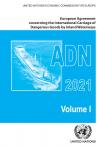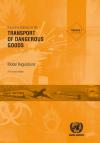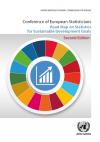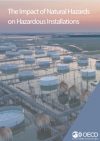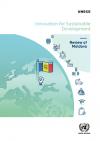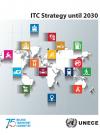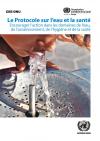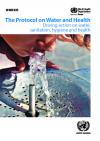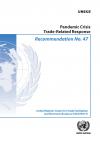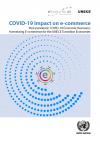Publications
Displaying Results 281 - 300 of 2840
- English
This publication contains the Smart Sustainable Cities profiles of five Norwegian cities - Ålesund, Asker, Bærum, Rana and Trondheim.
The publication presents the efforts of Ålesund, Asker, Bærum, Rana and Trondheim to reinforce the implementation of the 2030 Agenda for Sustainable Development and provides information on the policies, programmes, projects and partnerships of the cities to
- English
The population of the UNECE region is ageing: one in four people will be 65 years old or above by 2050 compared to one in six today. Population ageing has social and economic implications for which societies need to prepare. This requires a coordinated, whole-of-government and whole-of-society effort to bring societies and economies into harmony with demographic change, otherwise known as ‘
- English
The Trans-European North-South Motorway (TEM) Project was initiated to facilitate road traffic in Central, Eastern and South-Eastern Europe, and to assist with the process of integrating European transport infrastructure systems.
Major infrastructure projects which are implemented to improve the efficiency, safety and environmental performance of the TEM Backbone Network are often accompanied by
- English
The Inland Transport Committee (ITC) of the United Nations Economic Commission for Europe (UNECE) was formally established in July 1947. For 75 years, ITC has provided a platform for intergovernmental cooperation to facilitate and develop international transport while simultaneously improving its safety and environmental performance. The main results of this critical work are reflected in the 59
- English
The Framework on Automated/Autonomous and Connected Vehicles (FDAV), developed at the intergovernmental level, forms a novel initiative aimed at harmonizing globally automated driving regulations and creating a more productive environment for innovation.
Since the establishment of GRVA, the Working Party has created a global scheme to develop requirements and guidelines for automated and
- English
The electronic version of GHS Rev.9, available for free for consultation purposes is available here.
Printed versions and electronic editable versions are available for sale at the United Nations Publications section at:
- English
From this page it is possible to view and download the text of the annexed regulations to the ADN as applicable from 1 January 2021 (ADN 2021) in PDF format. The electronic version of the publication is made available for information purposes only. To comply with the requirements of ADN, refer to the official UN official publication on paper.
- English
These recommendations have been developed in the light of technical progress, the advent of new substances and materials, the exigencies of modern transport systems and, above all, the requirement to ensure the safety of people, property and the environment. They are addressed to governments and international organisations concerned with the regulation of the transport of dangerous goods. The
- English
The second edition of the Road Map on Statistics for SDGs aims to provide guidance to members of national statistical systems and other stakeholders on how to best navigate the complex task of measuring the achievement of the goals and targets of the 2030 Agenda. By doing so, it strives to strengthen reliable data-based national information systems and support efforts to achieve the Goals.
The
- English
Natural Hazards Triggering Technological Disasters (Natech) are becoming a growing concern for the international community and both private and public stakeholders. As climate change persists, extreme weather events such as heavy rains, lightening, floods and heatwaves are projected to be increasingly frequent and destructive, jeopardizing communities, livelihoods and industries. Accidents at
- English
Since independence, Moldova has navigated the challenging transition to a market economy while achieving significant, albeit volatile, economic growth, reduced poverty levels and the status of a lower-middle-income economy. However, productivity growth has declined as original drivers of structural change in the early post-independence era have run out of steam. Moldova’s commitments under the
- English
The Inland Transport Committee (ITC) of the United Nations Economic Commission for Europe provided countries with the ITC Recommendations for Enhancing National Road Safety Systems (“ITC Recommendations”), adopted at its eighty-second session (ECE/TRANS/2020/9).
These recommendations give a comprehensive picture of national road safety systems that includes all key elements at the national level
- English
The Strategy pronounces the ITC’s Vision as a UN platform for inland transport to help efficiently address global and regional needs in inland transport. The platform provides a comprehensive regulatory framework for inland transport, comparable to the role of the International Maritime Organization (IMO) and International Civil Aviation Organization (ICAO).
It sets the mission for ITC to
- Pусский
Протокол ЕЭК ООН-ВОЗ/Европа по проблемам воды и здоровья является юридически обязательным международным соглашением для стран общеевропейского региона. Его цель — обеспечение охраны здоровья и благополучия человека за счет устойчивого управления водными ресурсами, а также посредством предотвращения и ограничения степени распространения заболеваний, связанных с водой.
Данная публикация
- Français
The UNECE-WHO/Europe Protocol on Water and Health is an international legally binding agreement for countries in the pan-European region. Its objective is to protect human health and well-being through sustainable water management and by preventing and controlling water-related diseases.
This publication provides an introduction to the Protocol on Water and Health, presenting its core provisions
- English
The UNECE-WHO/Europe Protocol on Water and Health is an international legally binding agreement for countries in the pan-European region. Its objective is to protect human health and well-being through sustainable water management and by preventing and controlling water-related diseases.
This publication provides an introduction to the Protocol on Water and Health, presenting its core provisions
- English
The calendar covers selected findings on greening the economy and financing environmental protection from 16 environmental performance reviews (EPRs) conducted in the period 2012–2021, and additional updated information provided by countries.
By disseminating the results of the EPRs in the form of a calendar for the upcoming year, UNECE aims to draw attention to the findings of the reviews and
- English
Recommendation 47 outlines measures to mitigate the adverse impact of a pandemic such as COVID-19 on trade flows. Such pandemics have revealed the challenges of facing a health crisis and its impact on society and economies which could potentially leave lasting scars on the global economy.
Download:
- English
Transportation demand is forecasted to triple by 2050. Keeping track of that intensification of transportation is imperative for all supply chain stakeholders. Motivated by factors such as operational efficiency standards, competitive pressures, heightened customer expectations and governmental regulations, both public and private organizations are searching for mechanisms to reduce risks by
- English
The COVID-19 pandemic has sunk the global economy into the deepest recession in decades and continues to take an unprecedented toll on human health and life. In an effort to contain and prevent the spread of the disease, governments across the globe, imposed restrictions on movement. Border closures and partial or full lockdowns became the new normal in many parts of the world. The pandemic and
